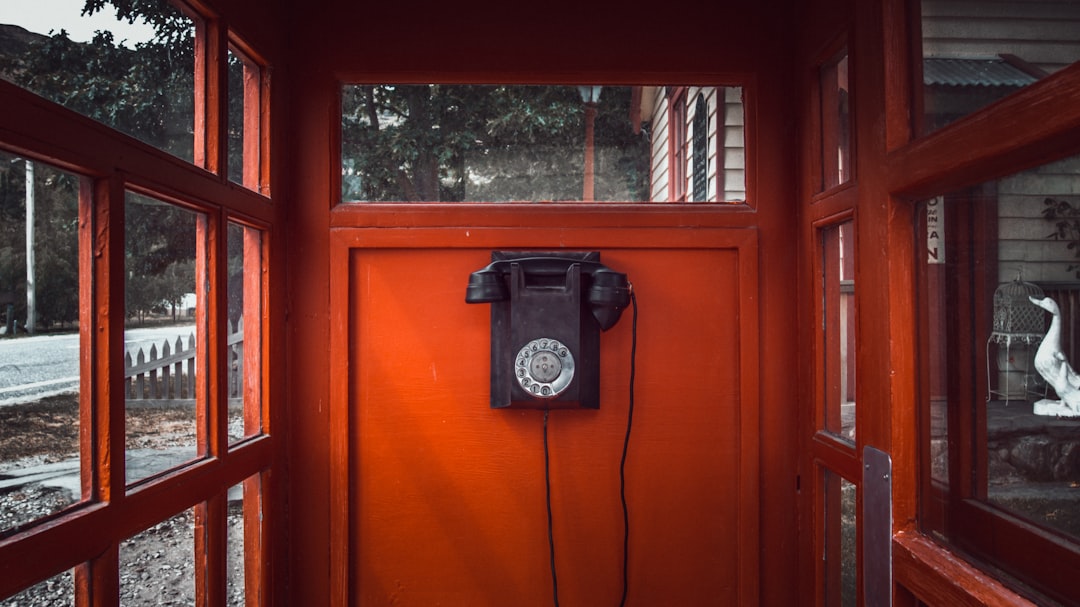Robocalls are intrusive and often fraudulent, but Maryland's TCPA safeguards residents. Documenting unwanted calls, using blocking apps, and consulting legal experts can help combat them, even in Missouri. Collective action through community groups and reporting scams further strengthens the fight against robocallers, with legal options like suing for damages under specific state laws.
Maryland residents face a growing tide of robocalls, but together, we can combat this nuisance. This guide explores effective strategies to identify and stop unwanted calls, including legal rights and options under Maryland law. Learn how community action and collective efforts can enhance protection against robocallers. Discover proven tactics to safeguard your phone from future intrusions, and understand when—and if—you can sue for robocalls in Maryland.
Understanding Robocalls and Legal Rights in Maryland

Robocalls, automated phone calls that deliver prerecorded messages, have become a ubiquitous and often unwanted part of daily life in Maryland. While many calls are from legitimate sources, others can be fraudulent or harassing. Maryland residents have legal protections against excessive or illegal robocalls.
In Maryland, the Telephone Consumer Protection Act (TCPA) provides consumers with rights to stop unsolicited phone marketing calls, including robocalls. This includes the right to opt-out of future calls and to seek legal action if they believe their rights have been violated. If you’re wondering can I sue for robocalls in Missouri, understand that while individual lawsuits can be pursued, collective actions or class-action suits are often more effective in holding telemarketers accountable and securing substantial compensation for victims.
Identifying and Documenting Unwanted Calls

Recognizing and recording unwanted calls is a crucial step in combating robocalls. Maryland residents can identify suspicious calls by checking their call history for unfamiliar numbers, frequent unknown callers, or repeated calls from the same source. If a call is suspected to be automated, listeners should pay attention to unusual pause times, computer-generated voices, or pre-recorded messages. Documenting these interactions is essential; keeping a log of the caller’s number, the date and time of the call, and a brief description of the content can help in identifying patterns and potential sources.
Additionally, residents can use technology to their advantage, such as download apps designed to block or identify robocalls. These applications often provide detailed information about incoming calls, allowing users to filter out unwanted numbers. While these measures don’t always guarantee a legal case for suing over robocalls in Missouri (as the ability to sue depends on specific circumstances and local laws), it’s an effective way to protect oneself and contribute to a collective effort to reduce these intrusive calls.
Exploring Legal Options Against Robocallers

If you’re tired of receiving unwanted robocalls, know that Maryland residents have legal options to combat this growing problem. While blocking numbers and registering on ‘Do Not Call’ lists are common strategies, considering legal action against robocallers can be a powerful deterrent. In Missouri, for instance, there are strict laws in place to protect consumers from telemarketing fraud, including unauthorized robocalls.
If you believe you’ve been targeted by malicious robocallers, consulting with an attorney who specializes in consumer protection law could be beneficial. They can guide you on whether you have a valid case and the legal options available, such as suing for damages or seeking injunctive relief to stop the calls. Remember, collective action is key—by joining forces with fellow Maryland residents, you can create a stronger voice against robocallers.
Community Action: Collective Efforts to Stop Robocalls

In the fight against robocalls, Maryland residents can band together and make a collective impact. Community action takes many forms, from organized initiatives to simple peer-to-peer education. One effective strategy is to share information and best practices for identifying and blocking robocalls. Many cities and towns have established local groups dedicated to combating this nuisance, where residents can exchange tips on the latest scams and legitimate ways to stop unwanted calls.
Additionally, Maryland’s Attorney General’s Office often leads or collaborates on campaigns aimed at raising awareness about robocalls and their implications. These efforts can include legal actions against known scam artists, which may serve as a deterrent for others. While considering legal options, residents might ask, “Can I sue for robocalls in Missouri?” However, it’s essential to understand that state laws vary regarding class-action lawsuits for robocalls, and consulting with legal experts is advisable before taking such steps.
Effective Strategies for Protecting Against Future Robocalls

To effectively combat robocalls, Maryland residents can employ several strategies to protect themselves in the future. First, consider registering your phone number on the National Do Not Call Registry. This federal list restricts telemarketers from calling numbers listed on it, though it may not block all robocalls as some calls originate from non-telemarketer sources. Utilizing call-blocking apps is another robust method; these applications can identify and block known spam calls.
Additionally, staying informed about the latest robocall tactics is vital. Regularly update your phone’s operating system to patch security vulnerabilities that robocallers might exploit. Report suspicious calls to both your service provider and law enforcement to help track and stop persistent spammer activities. Lastly, be cautious when sharing personal information over the phone, as it can empower scammers and reduce the likelihood of future unwanted calls. Remember, while registering for protection and utilizing tools can significantly reduce robocalls, understanding your legal rights is equally important; if you feel you’ve been wrongfully targeted by robocallers, consult a lawyer to explore options, including potential lawsuits under Missouri’s regulations against unsolicited telemarketing practices.






